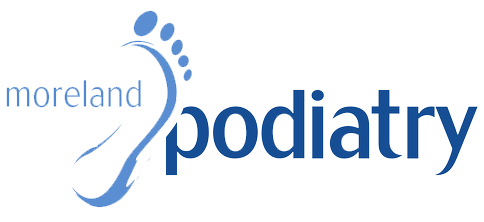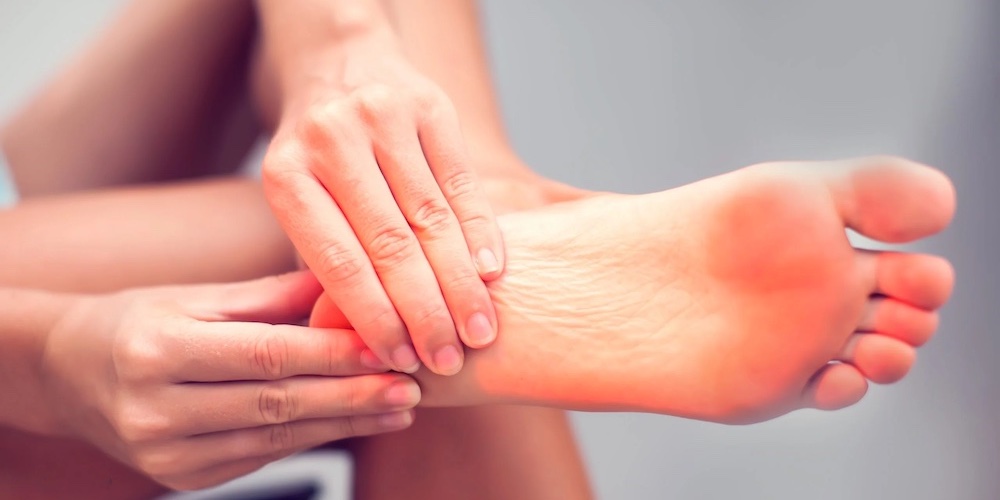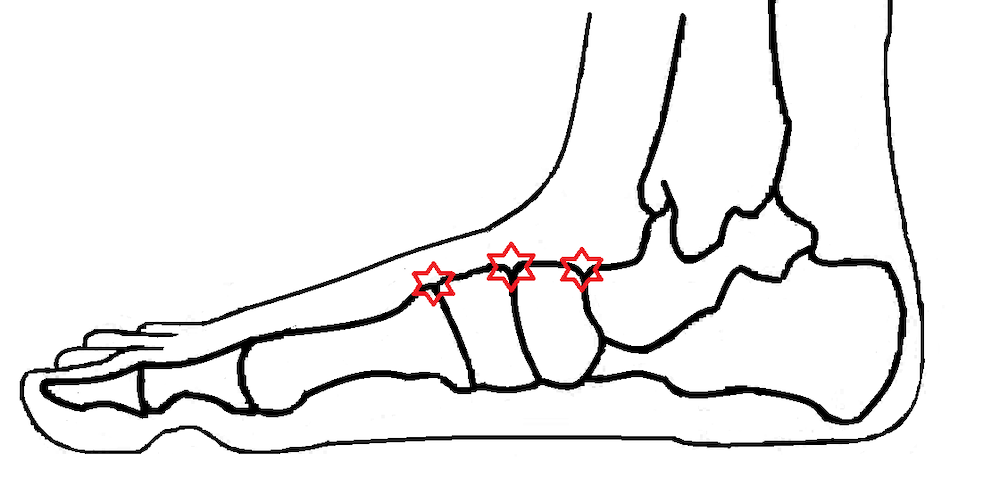Dorsal Compression Syndrome is one of the most common causes of foot pain in the world. It is a condition where the ligaments along the top of the midfoot become inflamed causing pain along the top of the feet.
In this blog we explain the symptoms, diagnosis and treatment of Dorsal Compression Syndrome.
What are the symptoms?
The symptoms of Dorsal Compression Syndrome usually include pain on either side of the foot and along the joint at the top of the foot. It can also include the following symptoms:
- Heel and arch pain
- Pain that is worse in the morning
- Soreness and pain that becomes worse over time
- Numbness, burning and tingling of the foot
- Bump on the top of the foot.
What Causes Dorsal Compression Syndrome?
When excessive pressure is applied between the joints at the top of the midfoot the arch of the foot collapses. This causes the arch to lengthen and the top of the foot to shorten, leading to pressure between the bones.
The collapsing of the midfoot can be caused by:
- Weight bearing activities
- Restricted movement of the ankle joint
- Increase in bodyweight
- Repetitive stress
- Ill fitted footwear
- Tight Achilles tendon
- Tight calf muscles
- Fracture, surgery or trauma resulting in arthritis
- Biomechanical abnormalities such as high arches or flat feet.
What is the treatment?
If diagnosed early, Dorsal Compression Syndrome responds well to conservative treatment. Types of treatments include:
- Supportive footwear
- Orthotics to prevent the arch flattening
- Changes to exercise, activities or routine
- Exercise Therapy
- Low Level Laser Therapy
Effective management of the injury requires any underlying mechanical causes to be addressed by a Podiatrist. Therefore, biomechanics and gait must be assessed prior to treatment.
Moreland Podiatry – Dorsal Compression Syndrome
If you are experiencing any pain to the top of your midfoot, it is important to ensure that you seek professional advice to avoid further damage to your feet.
The friendly staff at Moreland Podiatry are always happy to answer any questions you may have about foot pain. Feel free to contact the office or make an appointment online to have your feet assessed.



Recent Comments